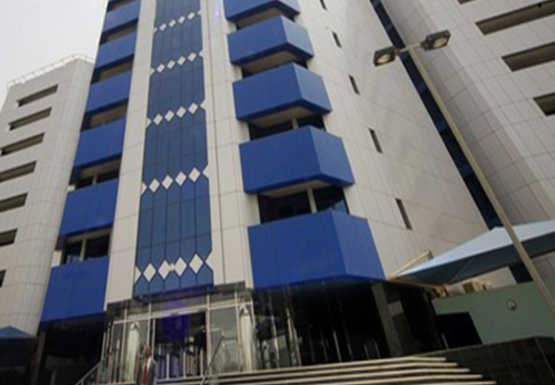Sudan’s banking system ‘teeters on collapse’ amid ongoing war and looting

The Central Bank of Sudan in Khartoum (File photo: CBoS)
KHARTOUM –
Sudanese economists have issued a stark warning about the nation’s banking system, which they say is facing a “severe decline and may collapse entirely”. The ongoing war between the Sudanese Armed Forces (SAF) and the paramilitary Rapid Support Forces (RSF) has led to numerous instances of looting, vandalism, and destruction at Sudan’s banks, leaving the country’s financial stability and functionality in peril.
The current banking crisis is further exacerbated by the fact that millions of workers in the public and private sectors have been without their salaries and wages since the war began in mid-April. Sudan’s soaring prices of goods and services and the fact that manufacturing has become limited and insufficient contribute to the problems.
Several institutions and companies have suspended operations and laid off employees.
At a recent cabinet meeting in Port Sudan, the Minister of Finance acknowledged that the delay in state employees’ salaries is due to the “collapse of the banking network and cash liquidity issues, stemming from the conditions of war”.
Speaking to Radio Dabanga, economist Eisa Adam highlighted the need for alternative banking systems in different parts of Sudan to counter the “tight centralisation and concentration of banking operations in Khartoum”, which greatly hinders the availability and accessibility of funds in other regions.
The “structural and organisational imbalances within some banks” add to this and have contributed to Sudan’s banking system being exposed as ‘inept’, according to economic expert Ibrahim Salem.
Salem stated that certain banks “failed to meet the Bank of Sudan’s requirements even before the war” and were suffering from fundamental “management and structural problems”.
Amid failing customer needs and waning confidence caused by looting and vandalism, economists anticipate that some banks may consider leaving the business even after the war ends.
For many, the banking system’s instability commands urgent attention and possible reinsurance solutions to alleviate the crisis and prevent a total collapse.
A collapse of the system could also pose severe challenges to humanitarian organisations active in Sudan.











 and then
and then